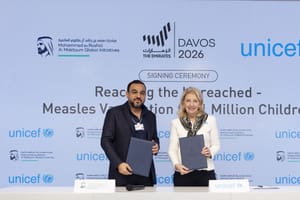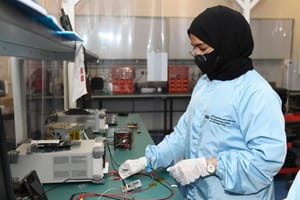World Malaria Day, which is annually observed on 25th April, represents an ideal occasion to highlight the milestones and achievements made by the UAE in the fight against malaria.
With this year's theme "Harnessing innovation to reduce the burden of malaria and save lives", the annual occasion aims to raise awareness about this deadly disease, which continues to threaten humanity.
Since 1997, the UAE has reported no malaria cases from within the country, and in 2007, the UAE was declared officially free of malaria, after years of efforts to control the disease. However, the UAE is still forging ahead with plans to develop a malaria strategy for diagnosing and examining imported cases, to provide the latest medicines and free treatments.
The UAE takes pride in its sustained efforts to confront malaria, not only locally but also globally, and it has never hesitated to provide aid and support to address this global humanitarian issue.
Over the years, the UAE offered financial support to the "Roll Back Malaria Partnership", as it is aware of its international responsibility and the need to accelerate the pace of confronting the disease. It has thus provided the necessary investments to develop new tools for the eradication of malaria.
International health organisations have commended the support to fight malaria, extended by His Highness Sheikh Mohamed bin Zayed Al Nahyan, Crown Prince of Abu Dhabi and Deputy Supreme Commander of the UAE Armed Forces. Recently, Malaria No More, in partnership with the Crown Prince Court of Abu Dhabi and the Reaching the Last Mile programme, announced the launch of a new global institute with the mission to combat malaria in the face of climate change and weather volatility. In 2020, His Highness Sheikh Mohamed offered an award of US$1.5 million to Malaria No More to assess the feasibility of climate-informed malaria strategies through Forecasting Healthy Futures (FHF).
On this occasion, the Ministry of Health and Prevention said that it is following an effective strategy to immunise the community against communicable and infectious diseases through improving the efficiency of the preventive health systems and the epidemiological surveillance programme to discover and treat imported cases in the country.
Malaria is a preventable and treatable disease, and in 2020, it was estimated that there would be 241 million new cases of malaria and 627,000 deaths from this disease in 85 countries. More than two-thirds of the deaths were among children under the age of five residing in the WHO African Region.
News Source: Emirates News Agency









